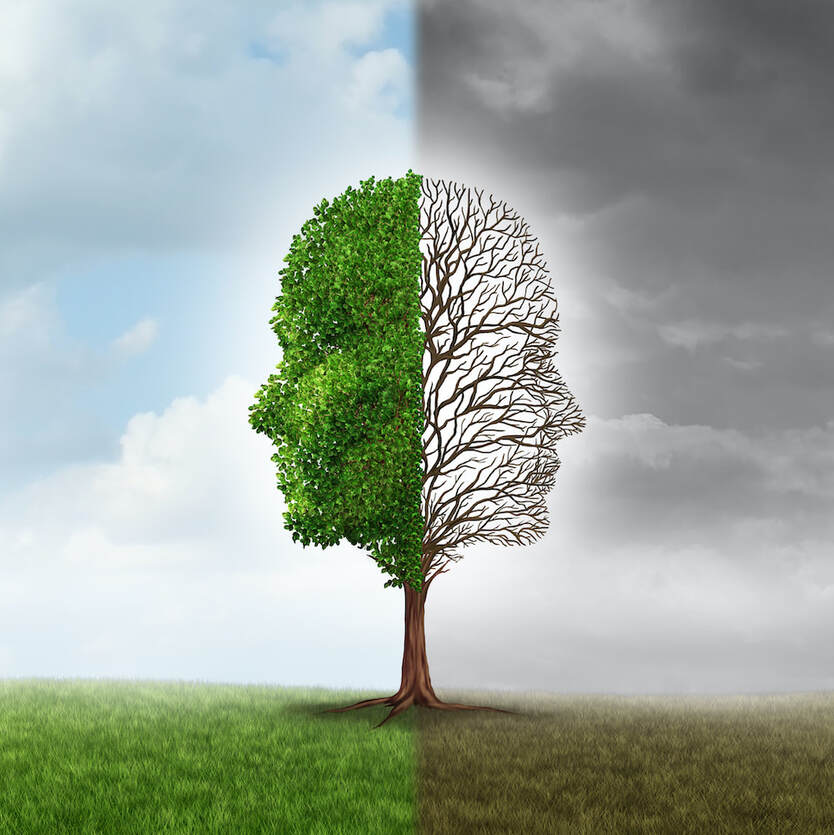|
1/3/2023 MYTHS Versus REALITIES OF Assisted Outpatient Treatment (AOT) FROM LENS OF mobile emergency psychiatric clinician ON FRONT LINESRead NowAssisted Outpatient Treatment (AOT) is a program under court order that motivates adults with serious mental illnesses who’ve had difficulty in adhering to voluntary treatment to engage in treatment. Civil courts and mental health agencies work together in AOT to reduce the frequency of inpatient hospitalizations and incarcerations. AOT encourages treatment teams to keep the recipients in treatment. An AOT request can be initiated as part of discharge planning on an inpatient unit, directly from an outpatient setting in the community, and upon release from jail or prison into the community. Forty-seven states and Washington D.C. allow AOT. Only three states, Maryland, Connecticut, and Massachusetts, lack AOT laws. Although AOT has become more accepted by mainstream society, controversy still exists because of myths. While I testified in favor of AOT at the state house in Massachusetts three times over the last several years, the strongest opposition came from peer specialists. AOT MYTHS versus realitiesMYTH: AOT is ineffective because there aren’t any consequences for treatment non-adherence. REALITY: Judges are not allowed to punish AOT recipients for non-adherence, but there can be consequences. The judge periodically meets with the recipient to reinforce the order. The length of the AOT program can be extended. The judge could order an emergency psychiatric evaluation. Rehospitalization on an inpatient unit might occur. MYTH: AOT is not person-centered and doesn’t align with the recovery model. REALITY: Although self-direction is limited at the beginning of the order, principles of the recovery model and person-centered care are used daily in AOT. Self-direction is preferred and should be maximized. Person-centered care can be emphasized even when recipients are not adhering to treatment. Using such an approach increases the chance of treatment adherence and positive outcomes. AOT does not necessarily lead to an increased sense of coercion. MYTH: AOT is too expensive. REALITY: Costs of AOT are small in comparison to the cost of inpatient care and incarceration. AOT is an evidence-based tool that typically results in fewer hospitalizations, fewer arrests, a decrease in homelessness, and fewer incarcerations. AOT saves money because hospitalization is far more expensive than outpatient care. MYTH: Comprehensive outpatient services that are voluntary would eliminate the need for AOT. REALITY: Many people with serious mental illness are incapable of engaging in treatment voluntarily because of their illness. Many of them have anosognosia, which is a lack of awareness of one’s own illness. By obligating mental health agencies and courts to engage them, AOT ensures that treatment interventions will be used for people who are most sick. AOT is a humane, reasonable, and evidence-based tool for people with psychosis who’ve had difficulty adhering to treatment. Widespread research has shown that AOT improves the overall functioning of its recipients. Addendum by Kerry Martin, CEO, accelerating social goodFor those interested in learning more about AOT and how it is used to help those most at risk for the negative and sometimes deadly consequences of not receiving treatment, additional reading follows:
GUEST AuthorLynn Nanos heads the Blogging Committee for National Shattering Silence Coalition Nonprofit, our pro bono client, and is also a member of their Steering Committee. She is a licensed independent clinical social worker employed as a full-time mobile emergency psychiatric clinician in Massachusetts. She evaluates patients in homes, jails, residential programs, day treatment programs, rest homes, hospital emergency rooms, and inpatient medical units, determining if patients are presenting a danger to themselves or others. She also authorizes and implements involuntary transfers of individuals to hospitals or refers them to residential treatment, outpatient care, or crisis stabilization units.
0 Comments
11/18/2021 IMPACT OF RELIGION AND STIGMA ON Getting TREATMENT FOR MENTAL ILLNESSES IN INDIA: MY PERSONAL BIPOLAR JOURNEY TO SEEK MEDIcAL and Family SUPPORT FOR MY PHYSICAL CONDITIONRead NowIF YOU HAVE A MENTAL ILLNESS, YOu're POSSESSED BY THE DEVIL. STIGMA IS RAMPANT STOPPING PEOPLE FROM REACHING OUT FOR HELP.India is a big diverse country with people from many different cultures and religions. Having a mental illness (or, what is really, a brain disorder) is still considered a taboo in many religions. Traditionally, people with mental illnesses are seen as being possessed by evil spirits. Some believe that these people must have done something bad in their past life so they are have been given this curse and will have to suffer their entire life. These beliefs are embedding in our culture, creating a barrier in getting treatment. Depression is not new to India and most see that as a weakness and expect a person to fix it themselves by meditation or yoga. When a person has a serious illness like bipolar disorder or schizophrenia, he/she/they have a hard time accepting the diagnosis and getting help. In India, even being a psychiatrist is stigmatized. They are considered crazy and inhumane people who give shock treatments. This traditional thinking has changed quite a lot but still we have psychiatrists in major cities only, with none in and remote areas. MY BIPOLAR JOURNEY to try and get help I needed from medical community and family and friends. Enter religion. Enter stigma.When I told my friends that I was taking psychiatric medications to treat my bipolar disorder, they told me that you don't need any medications and my psychiatrist is probably giving my the wrong medications that will make me more sick. When I was showing the first signs of mental illness, my parents asked a spiritual guru for advice. He informed them I was possessed by evil and they need to do prayers to get the evil energies out of me. Eventually, they did Maha Mritunjya path (prayers to eradicate evil) for two days and took huge sums of money. Nothing helped even one bit. The reluctance to getting proper help is such that if anyone says they are taking therapy, people regard them as weak and look down upon them. In educated and upper middle class families like mine, my parents still believe that mental illness is all in my head and a little walk or yoga could fix depression. I educated myself. I learnt more and more about illness by reading DSM4 and online blogs. Eventually, I decided to take treatment. That saved my life and made me a productive member of society. SO, WHAT DOES THE FUTURE LOOK LIKE IN MY COUNTRY? is there hope?There is light at the end of tunnel, albeit hidden. My country has come a long way but still needs more awareness around these topics. With COVID-19, people felt the importance of mental health as they were unequipped to deal with extreme situations like the loss of jobs, loss of loved ones etc., which pushed many people towards depression and anxiety. That situation paved the way for many to open up about their mental health. This was also the first time I saw the topic of mental health in the national news. In the past few years, the Indian government has passed many laws like giving quotas (reservations) for people with mental illness in getting government jobs. Marriages can no longer be annulled because of the mere presence of mental illness. Now, we can have insurance which covers consultations and admission charges. Hope is here. With more educated people and more corporate stress, mental illnesses are slowly being recognized as physical illnesses and this acceptance will, I hope, continue to improve in the coming future. AuthorHitesh Gupta, India Chair, Accelerating Mental Wellness, A Global Workplace Cause-Advocacy Initiative Sponsored by Accelerating Social Good |
Details
Archives
February 2023
Categories
All
|


 RSS Feed
RSS Feed